A major collection. Booklist The poets in this superb collection pay attention to the wonders of the natural world, the signs of precariousness of life in all living beings, the little changes that comprise each day, and the small details that are often missed by those who are less observant. Spirituality & Health These evocative poems capture the ephemera of nature with uncanny starkness. Buddhadharma There is no need to be mystical or religious to enjoy this writing. The Bloomsbury Review This is a book to enrich our life and our practice, a collection that encourages us to be mindful, to keep at it. Tricycle ABOUT THE BOOK A Zen poem is nothing other than an expression of the enlightened mind, a handful of simple words that disappear beneath the moment of insight to which it bears witness. Tricycle ABOUT THE BOOK A Zen poem is nothing other than an expression of the enlightened mind, a handful of simple words that disappear beneath the moment of insight to which it bears witness.
Poetry has been an essential aid to Zen Buddhist practice from the dawn of Zenand Zen has also had a profound influence on the secular poetry of the countries in which it has flourished. Here, two of Americas most renowned poets and translators provide an overview of Zen poetry from China and Japan in all its rich variety, from the earliest days to the twentieth century. Included are works by Lao Tzu, Han Shan, Li Po, Dogen Kigen, Saigyo, Basho, Chiao Jan, Yuan Mei, Ryokan, and many others. Hamill and Seaton provide illuminating introductions to the Chinese and Japanese sections that set the poets and their work in historical and philosophical context. Short biographies of the poets are also included. SAM HAMILL has translated more than two dozen books from ancient Chinese, Japanese, Greek, Latin, and Estonian.
He has published fourteen volumes of original poetry. He has been the recipient of fellowships from the National Endowment for the Arts, the Guggenheim Foundation, the Woodrow Wilson Foundation, and the Mellon Fund. He was awarded the Decoracin de la Universidad de Carabobo in Venezuela, the Lifetime Achievement Award in Poetry from Washington Poets Association, and the PEN American Freedom to Write Award. He cofounded and served as Editor at Copper Canyon Press for thirty-two years and is the Director of Poets Against War. J. P. SEATON is Professor of Chinese at the University of North Carolina, Chapel Hill.
He is the translator of numerous books, including The Shambhala Anthology of Chinese Poetry, and his poetry translations have been widely anthologized in such books as The Anchor Book of Chinese Poetry, The Norton Anthology of World Poetry, and The Vintage Book of Contemporary World Poetry. Sign up to learn more about our books and receive special offers from Shambhala Publications.  Or visit us online to sign up at shambhala.com/eshambhala.
Or visit us online to sign up at shambhala.com/eshambhala.  The Poetry of Zen Edited and translated by SAM HAMILL and J. P. SEATON
The Poetry of Zen Edited and translated by SAM HAMILL and J. P. SEATON  SHAMBHALA Boston & London 2011 FRONTISPIECE: Kanzan and Jittoku by Gako (Tengen Chiben, 17371805).
SHAMBHALA Boston & London 2011 FRONTISPIECE: Kanzan and Jittoku by Gako (Tengen Chiben, 17371805).
Private Collection. Translation of the inscription: My heart is like the autumn moon, Pure and unsullied on the blue-green pool. SHAMBHALA PUBLICATIONS, INC. Horticultural Hall 300 Massachusetts Avenue Boston, Massachusetts 02115 www.shambhala.com 2004 by Sam Hamill and J. P. Seaton Cover art: Freer Gallery of Art, Smithsonian Institution, Washington, D.C.: PurchaseHarold P.
Stern Memorial Fund, F 1996.28. All rights reserved. No part of this book may be reproduced in any form or by any means, electronic or mechanical, including photocopying, recording, or by any information storage and retrieval system, without permission in writing from the publisher. The Library of Congress catalogues the previous edition of this book as follows: The poetry of Zen/edited and translated by Sam Hamill and J.P. Seaton1st ed. cm. eISBN 978-0-8348-2508-6 ISBN 978-1-57062-863-4 (hardcover: alk paper) ISBN 978-1-59030-425-9 (paperback) 1. eISBN 978-0-8348-2508-6 ISBN 978-1-57062-863-4 (hardcover: alk paper) ISBN 978-1-59030-425-9 (paperback) 1.
Zen poetry, JapaneseTranslations into English. 2. Zen poetry, ChineseTranslations into English. I. Hamille, Sam. II.
Seaton, Jerome P. PL782.E3P624 2004 895.61080382943927dc22 CIP 2004002480 Z EN IS A MATTER OF CHARACTER, not a matter of intellect, as D. T. Suzuki emphasized. And yet there are probably tens of thousands of readers of Zen books for every one who has experienced Zen, which means simply, meditative absorption. Its practice, its embodiment, is zazen (tso-chan in Chinese), sitting meditation.
Without a daily sitting practice, the experience of Zen remains an intellectual exercise. Only through maintaining such a practice may one begin to encounter the true collectedness of mind and compassionate heart that leads to self-realization and transcendent wisdom. When D. T. Suzuki stressed character over intellect three-quarters of a century ago, there were very few books on Zen available in English. The great Zen teachers and poets of China and Japan were virtually unknown in the West, and the term itself remained largely obscure until the San Francisco Renaissance of the 1950s, when Jack Kerouacs novel The Dharma Bums and the poetry and essays of Kenneth Rexroth, Gary Snyder, Philip Whalen, and Alan Watts brought it to public attention.
Despite his eccentric and often wrongheaded notions of Buddhism in general and Zen in particular, Jack Kerouac introduced the eighth-century Chinese poet Han Shan (Cold Mountain) to tens of thousands of readers, and although he referred to them by pseudonyms, he helped also introduce readers to poets Gary Snyder and Philip Whalen. Since its inception, Zen has had a paradoxical relationship with literature, especially as regards translation and poetry. The practice of translating was born with the teachings of Siddhartha Gautama, known as Shakyamuni Buddha (sixth century BCE), a title meaning Awakened Sage of the Shakya Clan. The Buddha asked his disciples to translate his teachings into all the languages and dialects of his native India. Those teachings (sutras) contained allegorical tales, anecdotes, recorded conversations, and ritual verses. Even at the beginning of Buddhism, poetry was an essential aid to understanding.
The most influential sutra in the world of Zen, Hui Nengs early Tang dynasty (seventh century) Platform Sutra declares: The complete teachings of all Buddhaspast, present and futureare to be found within the essence of every human being. Hui Neng was an illiterate woodcutter, but his insights were persuasively penetrating. He believed that only those who could not grasp that essence needed teachers. He advocated shikantaza, just sitting, which he defined as a meditative state in which perception is utterly free of discrimination between mind and matter, self and object; where the only permanence is impermanence; and where change, whether subtle or violent, remains the essence of being. He suggested that the practice itself is an expression of enlightenment and therefore leads to ever greater enlightenment. Realizing ones own real essence is the ultimate expression of enlightenment.
In short, Hui Nengs Zen stripped away the rituals, lineages, and formalities that had become a cumbersome institution in Chinese Buddhist traditions. Zen practice is eminently simple and profoundly rigorous. All the questions of being are called forth. There is no escape into faith. In your heart, you already know. The tenth-century Zen master Penhsien reminded his followers not to depend too much on sutras or
Next page
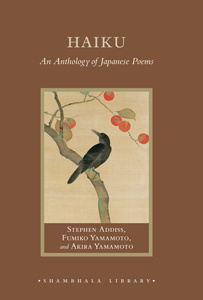
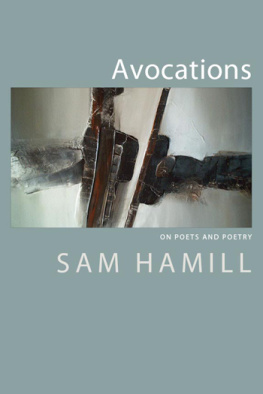
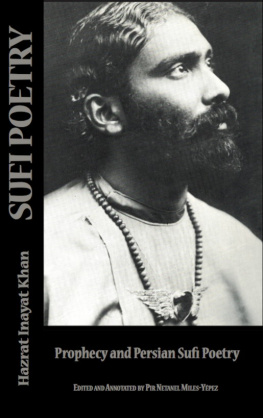
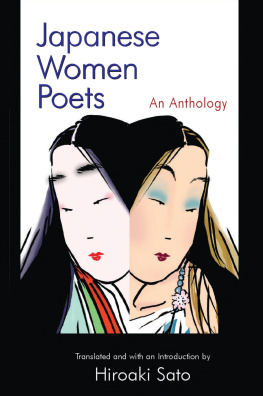


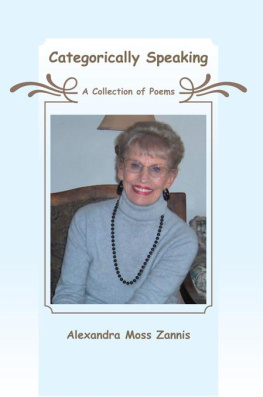
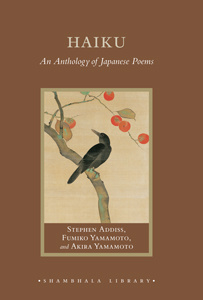
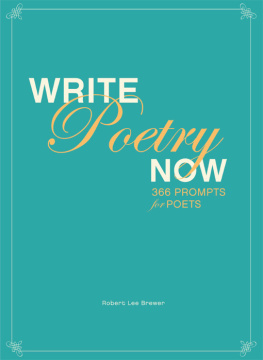


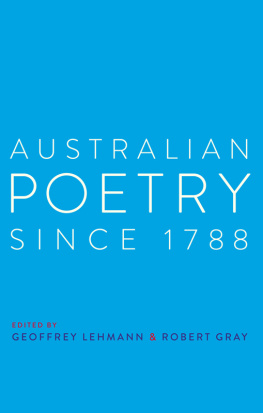

 Or visit us online to sign up at shambhala.com/eshambhala.
Or visit us online to sign up at shambhala.com/eshambhala.  The Poetry of Zen Edited and translated by SAM HAMILL and J. P. SEATON
The Poetry of Zen Edited and translated by SAM HAMILL and J. P. SEATON  SHAMBHALA Boston & London 2011 FRONTISPIECE: Kanzan and Jittoku by Gako (Tengen Chiben, 17371805).
SHAMBHALA Boston & London 2011 FRONTISPIECE: Kanzan and Jittoku by Gako (Tengen Chiben, 17371805).